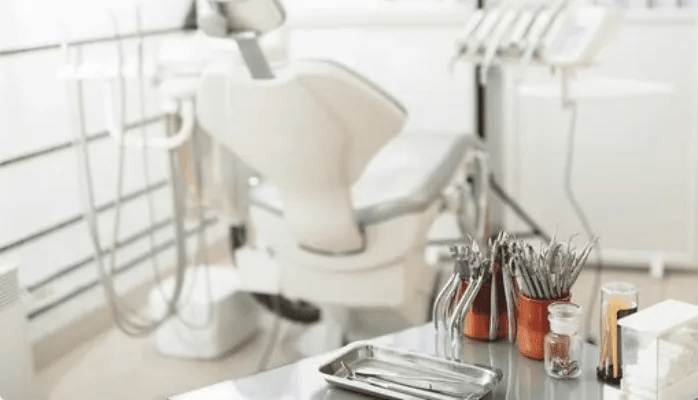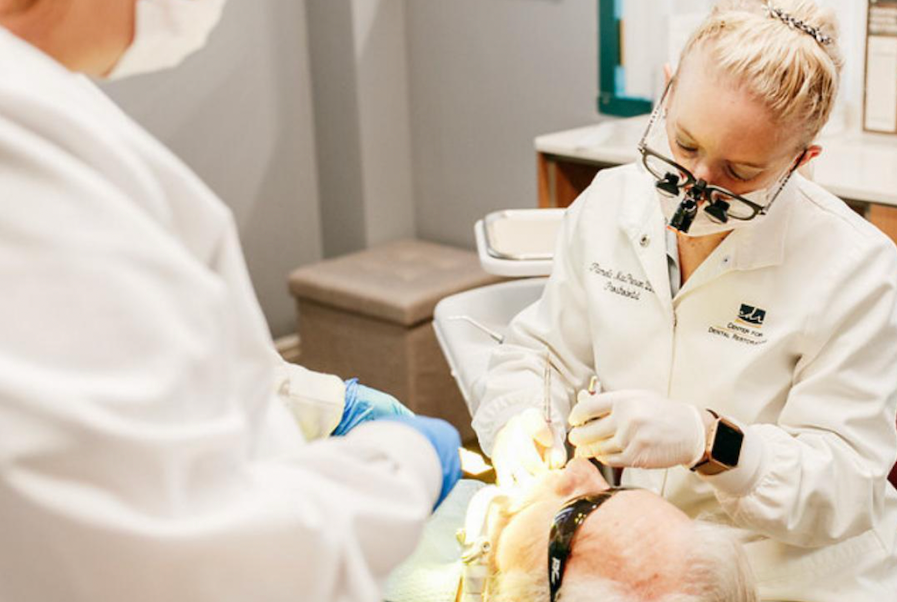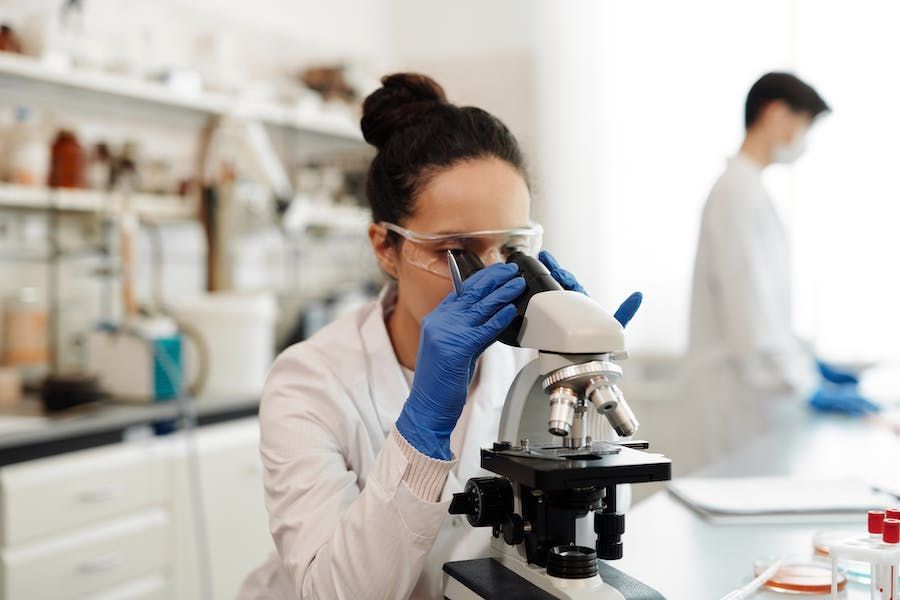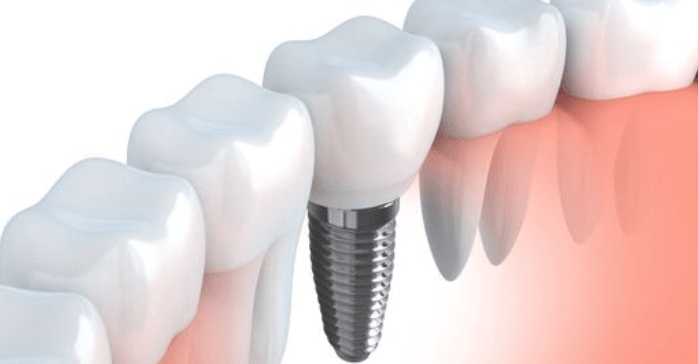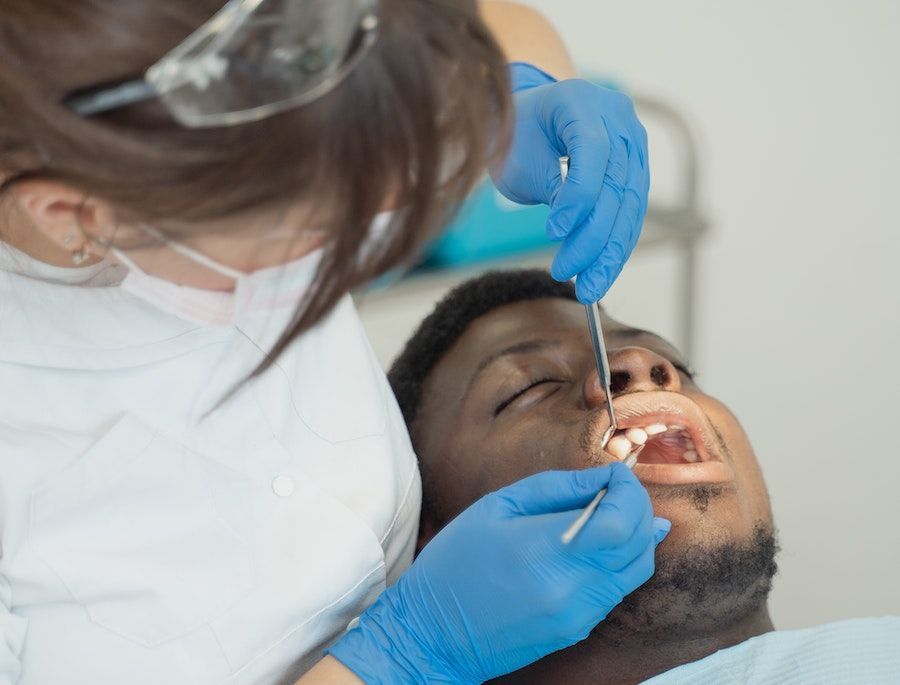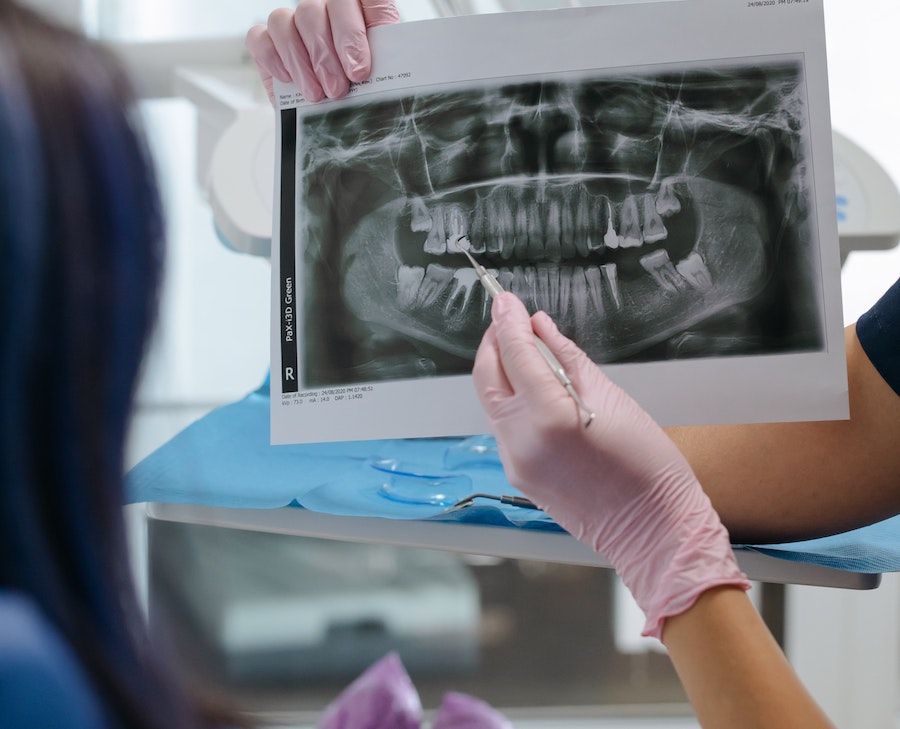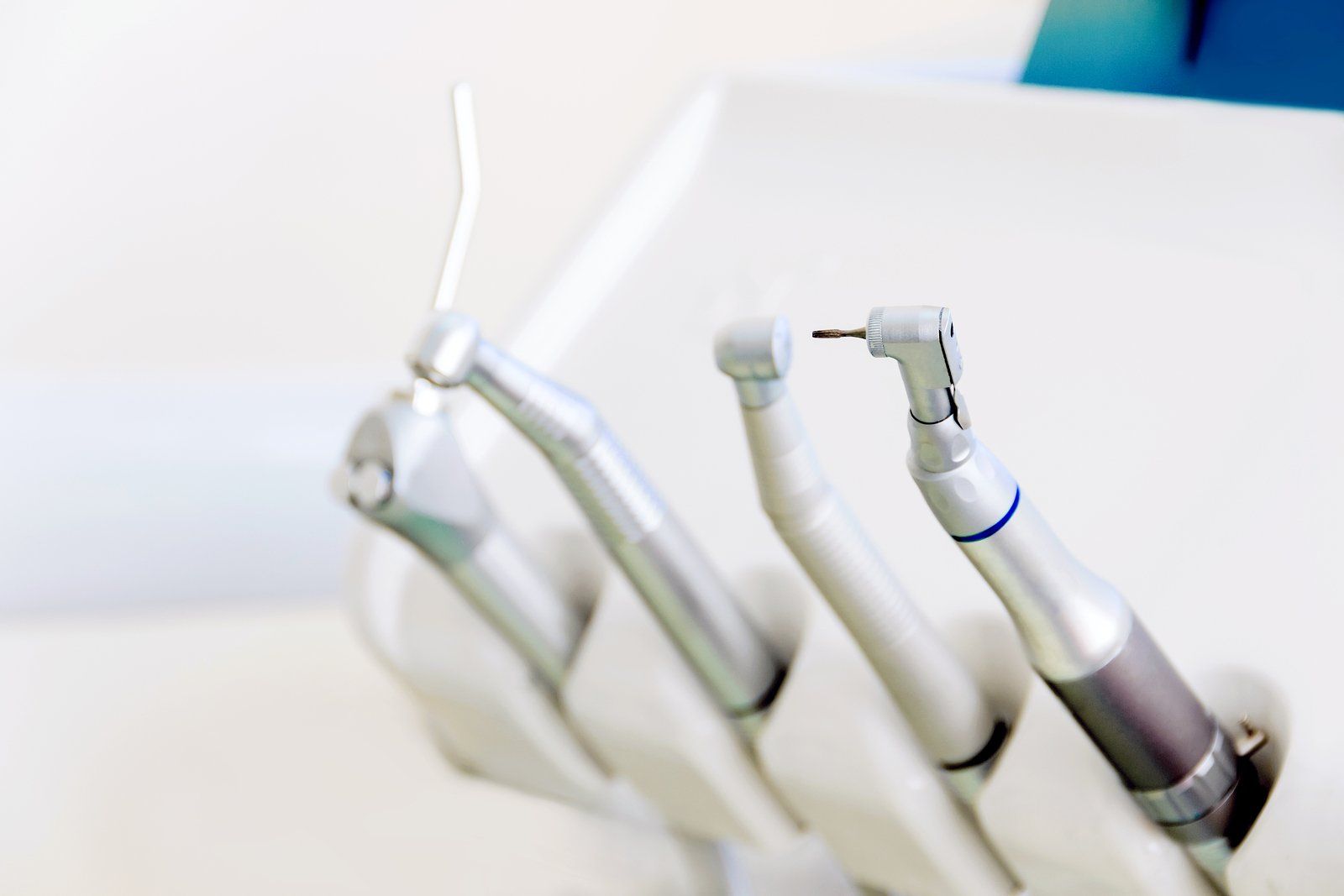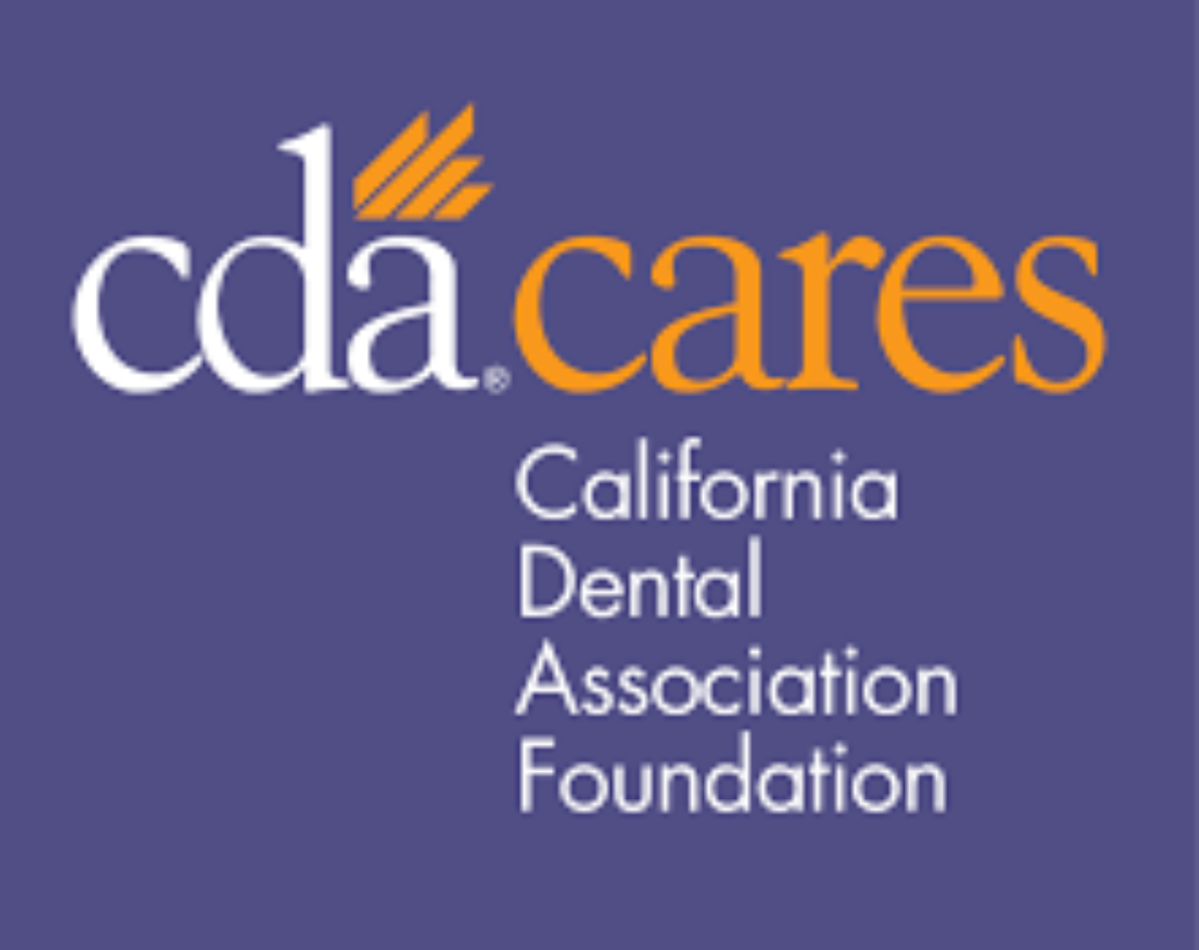All About Partial Dentures For Back Teeth
Partial dentures are an ideal solution when a few of your back teeth are missing or damaged. While it's more common for these dentures to be used in front teeth, technology now allows them to be used for back molars too. Let's explore what you need to know about partial dentures for back teeth.

What Are Partial Dentures?
Partial dentures are prosthetic devices that replace missing or damaged back teeth during eating and speaking activities. They use a combination of false teeth, metal clasps, and bridges to replicate smiles while simultaneously providing functionality and support.
Why Is Replacing Missing Back Teeth Important?
The main benefit of partial dentures is that they can quickly restore the full function of the mouth where natural teeth can't be restored (without expensive dental surgery). Additionally, they are relatively strong and durable due to their construction materials – usually acrylic and metal wiring. Partial dentures can also provide extra mental awareness as people with this type of appliance may be more likely to brush their remaining natural teeth regularly than those without dental appliances.
Preserve Jawbone Density
When back teeth are missing, the jawbone density in the surrounding area begins to deteriorate as it is no longer being replaced. Eventually, it can cause problem with eating and speaking.
Maintain Gum Tissue Volume
Replacing missing back teeth can help maintain gum tissue volume by forming an even line along the occlusal (bite) surface. This in turn evenly distributes the forces generated when biting and chewing food, reducing any excessive wear or damage to the gum tissue.
Prevent Further Tooth Loss
Replacing missing back teeth prevents further tooth loss because it helps to maintain the structure of a person's mouth. When back teeth are missing, other teeth can slowly start to drift out of alignment, eventually leading to more tooth loss over time. By replacing these missing teeth with partial dentures, it can help keep other teeth in place, reduce any gum disease or decay, and minimize future want and need for more orthodontic work. Additionally, replacing missing back teeth will improve the appearance of one's smile and function as they would with natural teeth.
Prevent Super Eruption & Dental Drift
Replacing missing back teeth helps to avoid super eruption and dental drift because it allows the opposing teeth to be in contact and prevent them from shifting into that empty space. Super eruption occurs when a single tooth is absent and its opposing counterpart can emerge above its original position, while dental drift is a slow process of the remaining surrounding teeth shifting closer together to fill in any open space. Replacing back teeth creates even pressure across all the teeth for the proper functioning of chewing. This helps to keep the alignment of the remaining teeth correctly maintained, avoiding both super eruption and drifting from occurring.
Procedure for Fitting Partial Dentures For Back Teeth
First, your dentist will take a full impression of your mouth in order to create a custom-fit model. This production process takes a few weeks before the item is ready for installation. Your dentist will then fit the partial denture into your mouth gradually, ensuring that all parts fit comfortably before cementing them in place permanently.
Caring For Partial Dentures
Routine care is key when using any type of removable dental device like partial denture – especially when it comes to the health and hygiene of your mouth and gums. Make sure you regularly remove debris from around the edges by gently cleaning with a soft-bristle toothbrush, mild detergent soap, and warm water; avoid vigorous scrubbing which may cause scratches or deterioration on the acrylic surface over time. Additionally, it’s important that you rinse off all items fully after cleaning as traces left behind could contribute to gum inflammation or other complications later down the line if not removed properly. Finally, store all items away from direct sunlight or heat sources in order to keep them looking their best!
We Can Help You With Partial Dentures For Back Teeth
Dr. MacPherson is the only female board-certified prosthodontist in San Diego. She is highly trained in replacing missing teeth. She believes there is no one-size-fits-all approach when it comes to dentures.
When you come to the Center for Dental Restoration for a single tooth denture, your denture is crafted to meet the unique and specific needs of your mouth. It will match your existing or former teeth and mouth structure.
It will appear natural, matching the size, shape, and shade of your natural teeth.
It will fit securely in your mouth.
It will provide you with the functionality you need and confidently chew again.
Contact one of our offices to learn more about partial dentures.
HILLCREST OFFICE: 619-294-9525
LA JOLLA OFFICE: 858-454-0325
Or click the button below to request an appointment.
by

